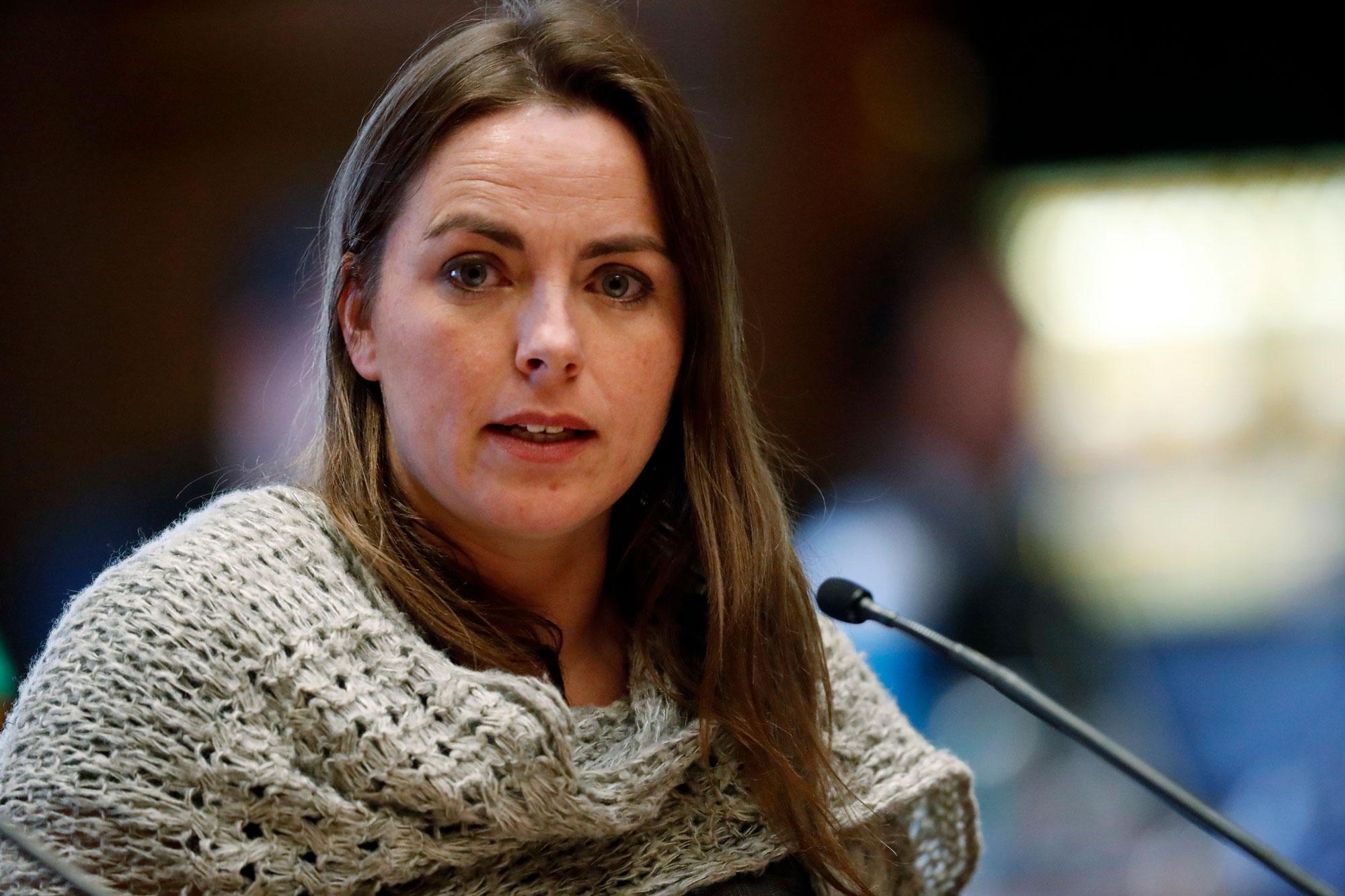

Democrat state Sen. Kerry Donovan says she thought agricultural and water issues would be her top priority when she was elected a Colorado state senator representing a central Rocky Mountain district in 2015.
But Donovan says that district has become the nation's most expensive individual health care market — and health care is her constituents' top concern. She is co-sponsoring a bill designed to have an almost immediate impact on reducing those premiums by having the state help insure the insurers.
A scheduled Senate committee hearing on the bill was postponed Thursday over concerns its proposed payment mechanism may not yet meet federal rules, Donovan said. She said the bill's sponsors planned to work over the weekend to find a solution.
HB 1168 would make the state cover some of the most costly medical bills incurred by patients on Colorado's individual market, or about 250,000 people who buy health coverage directly from insurers.
Legislative economists estimate the program would cost $237 million in fiscal year 2020-21, including $120 million in state funds and $117 in federal funds.
That would allow private insurers to lower market premiums. Residents in Vail, Eagle and Aspen — as well as the Western Slope, San Luis valley and the eastern plains — frequently pay $500 a month more than Denver residents.
"When I say people are choosing between health care and a mortgage, that's not exaggerated," Donovan said this week. She says reinsurance, also a top priority for Democratic Gov. Jared Polis, could deliver an immediate 35 - 40 percent reduction in individual premiums in rural Colorado and a 15 percent reduction in Denver.
Statewide, individual market premiums could drop by an average 21 percent starting in 2020, according to a legislative analysis of the bill.
Co-sponsoring the bill are Republican Rep. Janice Rich of Grand Junction, Republican Sen. Bob Rankin of Carbondale and Democratic Rep. Julie McCluskie of Dillon.
The Colorado Hospital Association opposed the bill until a draft calling for reinsurance payments to hospitals to be set at rates correlating to lower Medicare payments was eliminated.
A rulemaking process would determine when state reinsurance kicks in for individual patients. As currently written, the program would be partly funded by hospital fees over five years up to a maximum $500 million, federal funds and revenue bonds to be issued by the Division of Insurance.
"One of our goals this year is to lead by example. If we're going to tackle affordability, it's going to take all of us," said Julie Lonborg, the hospital association's vice president of communications.
If the bill becomes law, the hospital association will participate in rulemaking and crafting a state request for federal permission to implement the program. That request is needed because roughly two-thirds of the program will be paid for with federal funds currently used for tax subsidies for patients purchasing insurance under the Affordable Care Act.
Any changes to the bill would have to pass the Senate and be sent back to the House for its concurrence. The legislative session is set to end May 3.
At least seven states have seen rates drop by as much as 20 percent after adopting reinsurance programs, according to the National Council of State Legislatures. Others are seeking U.S. approval.









